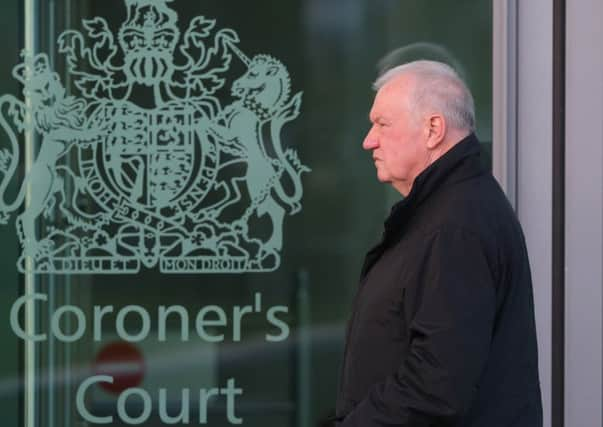Hillsborough chief ‘wasn’t best man for job’


Former chief superintendent David Duckenfield, the match commander, conceded his hands-on experience of the planning and policing of football matches was limited.
And he agreed it was a “serious mistake” not to seek the assistance of his predecessor after being appointed to the job with just 15 days to familiarise himself with the role before the match, he said.
Advertisement
Hide AdAdvertisement
Hide AdMr Duckenfield, 70, gave evidence from the witness box, with around 200 relatives of those who died at the match listening in silence in the courtroom in Warrington.
Ninety-six Liverpool fans died following a crush on the Leppings Lane terrace of Sheffield’s Hillsborough ground as the FA Cup semi-final against Nottingham Forest kicked off on 15 April, 1989.
Mr Duckenfield gave the order to open gates, allowing about 2,000 fans massing outside the turnstiles into the ground in the minutes before the fatal crush. He later told FA officials wrongly that a gate had been forced open, in comments repeated by the press.
He was asked if at the time of the match he had any concerns about his ability to do the job, given it was a new role and he did not have much experience of policing football matches.
Mr Duckenfield replied: “All I would say is this, that after a period, I would say, I’m older, hopefully wiser, probably I was not the best man for the job on the day.” Mr Duckenfield said he had no recent previous experience of policing at Hillsborough before the match and his knowledge of the stadium was “very general”.
And he agreed, while he had experience of public order policing, that was “totally different” to policing football matches.
He added: “At the time I should have thought about my limited knowledge of the role of a commander at a major event that was a sell-out when I had not been in that responsible position previously.”
Mr Duckenfield said, after first joining South Yorkshire Police as a cadet in 1960, he had been “delighted” to be promoted to the post of chief superintendent of F Division of South Yorkshire Police around March 1989.
Advertisement
Hide AdAdvertisement
Hide AdMr Duckenfield said his understanding of the job of match commander was he would not be involved in the day-to-day or minute-by-minute duties and would only become involved in decision making on the day if something went wrong.
The hearing continues.